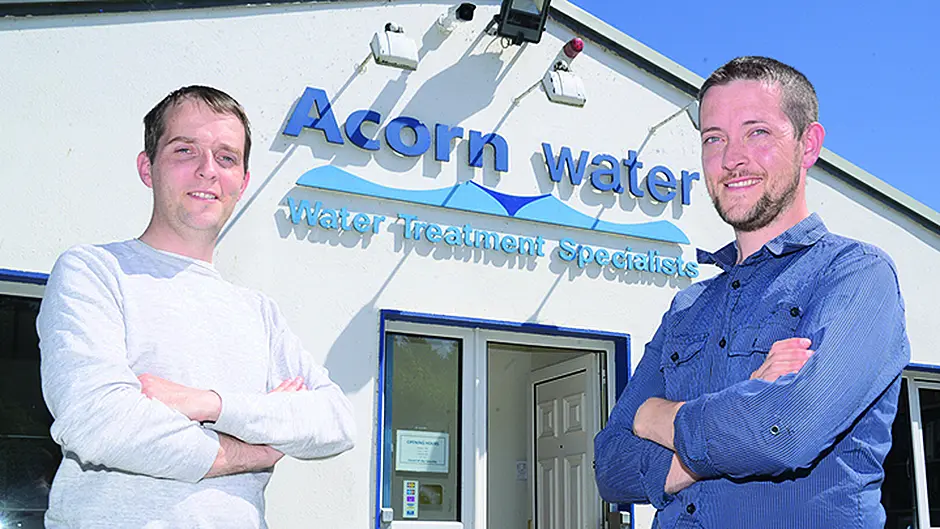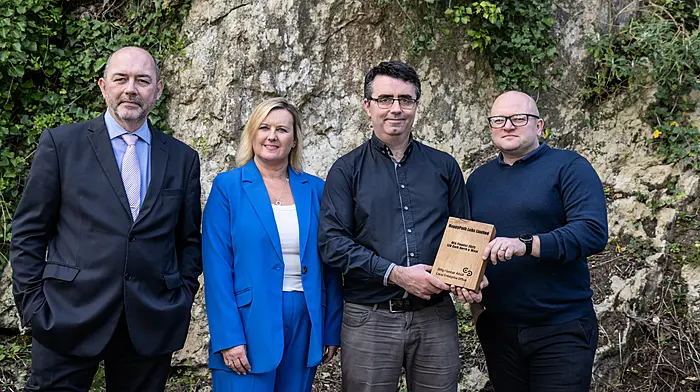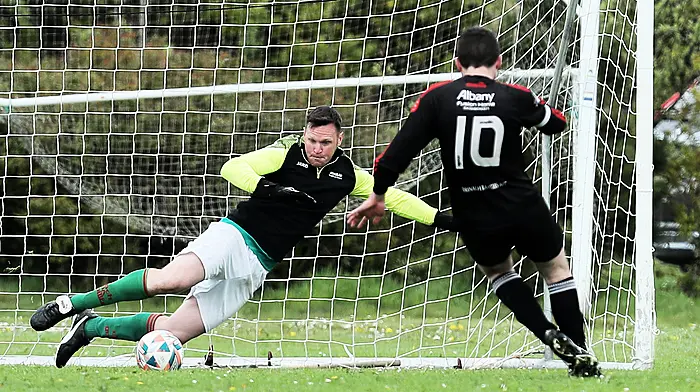Water is the ‘hot' topic of the moment with the country experiencing drought conditions. But, at the best of times, people want to know what kind of water they are consuming. One West Cork firm is helping them to find out
Water is the ‘hot’ topic of the moment with the country experiencing drought conditions. But, at the best of times, people want to know what kind of water they are consuming. One West Cork firm is helping them to find out
DO you know what’s in your water? And if not, would you like to?
Just like in other countries, the quality of our water is becoming a major talking point in Ireland, and more and more people are educating themselves on what we’re consuming.
As a result of this increasing trend, a Bandon company is expanding into the area of domestic water testing.
H20 Labcheck in Bandon is an arm of the well-established Acorn Water, which has been supplying testing facilities to commercial businesses for many years.
Acorn was set up 27 years ago by Eileen Holland and her husband Bill, and initially their primary focus was on supplying chemicals for water treatment.
But they noticed an increasing interest in property owners wanting to test their own water in recent years, and spotted an opening for a niche service.
Of course, this ‘niche’ service is now becoming a very mainstream option for homeowners who simply want to know what’s in the water.
Eileen says she recognised the huge market for this service from ‘day one’ of launching. ‘From the very first day we had four or five couples walking in here – many German – straight off the plane in Cork, and they would take a [testing] pack, and leave it in with us on the way back.’
In the early days, consumers would get the results posted back to them, but nowadays, everything is online.
‘The user experience is paramount and the corner stone of what we do,’ says Eileen’s son William, a water engineer who runs the technical side of the business. He has studied at CIT and also at Delft University in the Netherlands.
‘There is an increased awareness of water quality nowadays. Many customers can taste or smell problems in their water. We help them to identify those problems with results that everyone can understand,’ adds his brother, Aidan, who is also involved in the business.
The new H2O website is the result of a huge amount of liaising with web developers to ensure that the service is as practical and accessible as possible – something which the brothers believe makes the Bandon firm stand out from their competitors.
Although there are relatively few providing this domestic water testing service in Ireland, there is really nobody – anywhere – providing such a convenient one-stop-shop.
‘There are other water-testing companies out there,’ explains William, ‘but you’d nearly need a science degree yourself to understand the results.’
That’s the real selling point of H2O Labcheck. You tell them what you want to test for – be it manganese, chlorine, E Coli, lead, or your pH balance, and they will give you a total read-out showing you the recommended limits, alongside the actual level of that element in your water.
What’s more, they employ a ‘traffic light’ system for the results, from green (satisfactory) to orange (alert: close to exceeding the limits) and red (problem).
There are six different kits you can order online – to test either drinking water, wastewater, industrial process water, bathing water, surface water or aquarium water.
Within the drinking water’s sub-categories, you can choose one of the very popular well water kits which many West Cork homeowners avail of, if they are worried about their own supply.
A kit, which you can order online, will include a total check for all chemicals and bacteria that make up a private water supply, and your results will be posted online. The cost of €140 for the kit includes the testing and the results.
This type of test is particularly recommended for new wells, or property owners who have just moved to a new home. It’s basically an MOT for water supplies – a general once-over for all the important factors. Second or subsequent tests will be cheaper as they will most likely only need to check for bacteria levels, as levels of chemicals or elements don’t tend to vary hugely in water supplies.
The EPA recommends that private water supplies are checked every 12 months for bacteria, and every three years for chemical analysis, while food-related businesses should be testing their water at least once a year, depending on the numbers being served. There are also Bord Bia and HSE guidelines for food businesses that mean supplies must be certified as safe.
‘We also found that people buying and selling homes are another customer base that is very interested in our products,’ says William.
H2O Labcheck has found that business often picks up after a particularly wet winter, when heavy rainfall can cause water supplies to become contaminated.
With strict regulations being enforced, especially regarding companies dealing in drinks or food, there is an increasing demand for water testing.
But the public is now becoming very aware of the quality of their own water, and even public supplies can be tested by individuals.
With recent beach bacteria and other E Coli scares, many people are also nervous about swimming around the coast. But, as Eileen points out, anybody is entitled to check their bathing water, so if you are bathing regularly in one area, and you are worried about the water quality, you are entitled to get it tested yourself.
Swimming clubs or groups who use regular locations and may be concerned about nearby sewage discharges, might be particularly interested in this option.
And what happens if you do get a concerning reading? ‘We help them to understand the problems in their water so they can seek the right treatment from filtration suppliers,’ explains William.
Another customer base comes from a somewhat unusual source: parents of newborns. As water with increased levels of nitrates (which can be a byproduct of agricultural fertilisers) can be harmful to young babies, many mums and dads want to be sure their water supply is low in nitrates.
Regarding the presence of slurry in water, Eileen says she meets ‘a lot of customers with well-founded fears’ about the level of bacteria in private supplies.
A mine of information from her years working in the industry, she says lead in the water is a particular issue in certain parts of West Cork, where lead pipes still dominate. Eileen also confirms what for years many believed was a myth – some water can, indeed, turn dyed blonde hair green or yellow. ‘Dyed hair changes colour if there is a low pH in the water,’ she says.
But, luckily, that can be often rectified with a not-too-expensive filtration system.
William adds a pretty startling comment, however: ‘You know, one in every two samples that we receive, will fail.’
• See www.h2olabcheck.com









